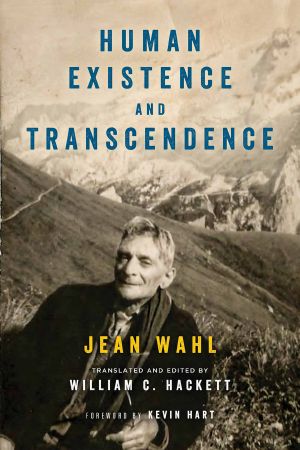Human Existence and Transcendence

- Authors
- Wahl, Jean & Hackett, William C.
- Publisher
- University of Notre Dame Press
- Tags
- philosophy
- ISBN
- 9780268101060
- Date
- 2016-12-15T00:00:00+00:00
- Size
- 2.62 MB
- Lang
- en
William C. Hackett’s English translation of Jean Wahl’s Existence humaine et transcendence (1944) brings back to life an all-but-forgotten book that provocatively explores the philosophical concept of transcendence. Based on what Emmanuel Levinas called “Wahl’s famous lecture” from 1937, Existence humaine et transcendence captured a watershed moment of European philosophy. Included in the book are Wahl's remarkable original lecture, the debate that ensued, with significant contributions by Gabriel Marcel and Nicolai Berdyaev, as well as letters submitted on the occasion by Heidegger, Levinas, Jaspers, and other famous figures from that era. Concerned above all with the ineradicable felt value of human experience by which any philosophical thesis is measured, Wahl makes a daring clarification of the concept of transcendence and explores its repercussions through a masterly appeal to many (often surprising) places within the entire history of Western thought. Apart from its intrinsic philosophical significance as a discussion of the concepts of being, the absolute, and transcendence, Wahl's work is valuable insofar as it became a focal point for a great many other European intellectuals. Hackett has provided an annotated introduction to orient readers to this influential work of twentieth-century French philosophy and to one of its key figures.
"Augmented by William C. Hackett's comprehensive introduction to Jean Wahl and his summary of Wahl's seminal Human Existence and Transcendence , we now have Wahl's most important writings in English. The book presents the well-known ideas of transascendence and transdescendence and, in so doing, highlights the relevance of Wahl's 'philosophy of transcendence' today. Remarkable for its anticipations of later French thought, Wahl's work provides a key to much of what remains hidden in the tradition of twentieth-century French thought." —Leonard Richard Lawlor, Edwin Erle Sparks Professor of Philosophy, Penn State University